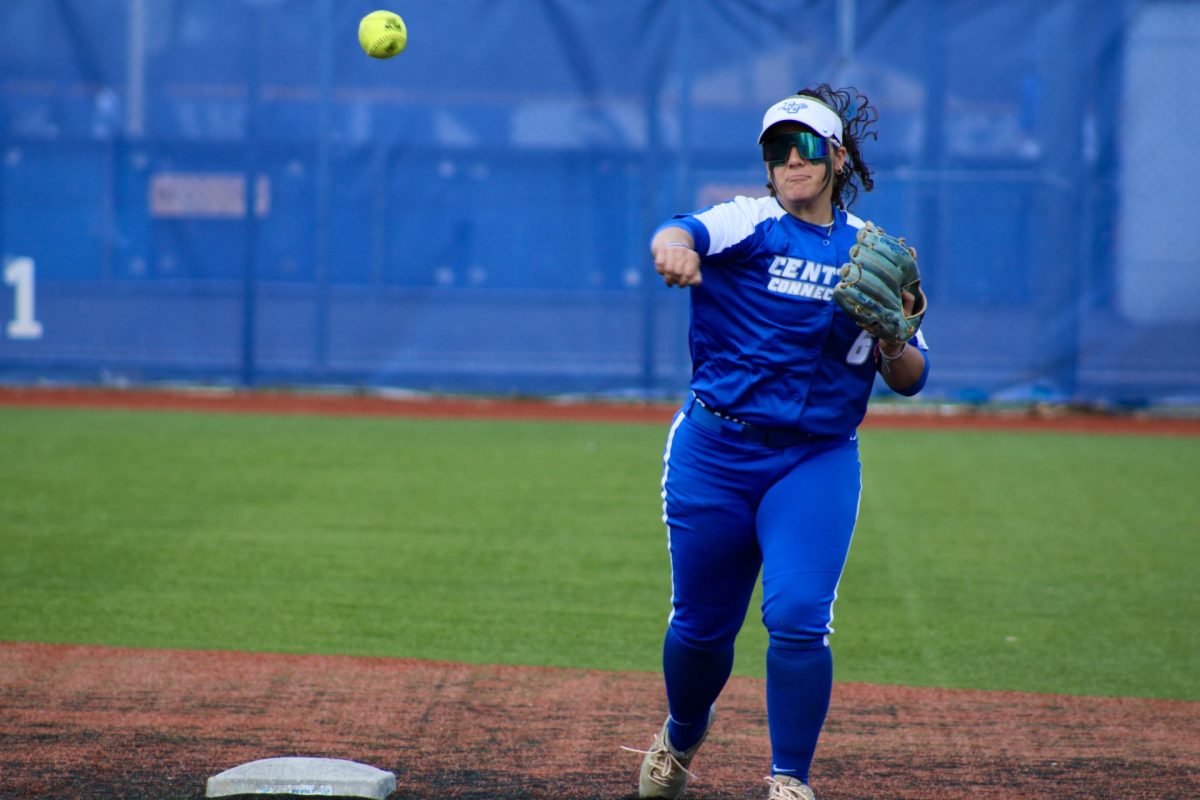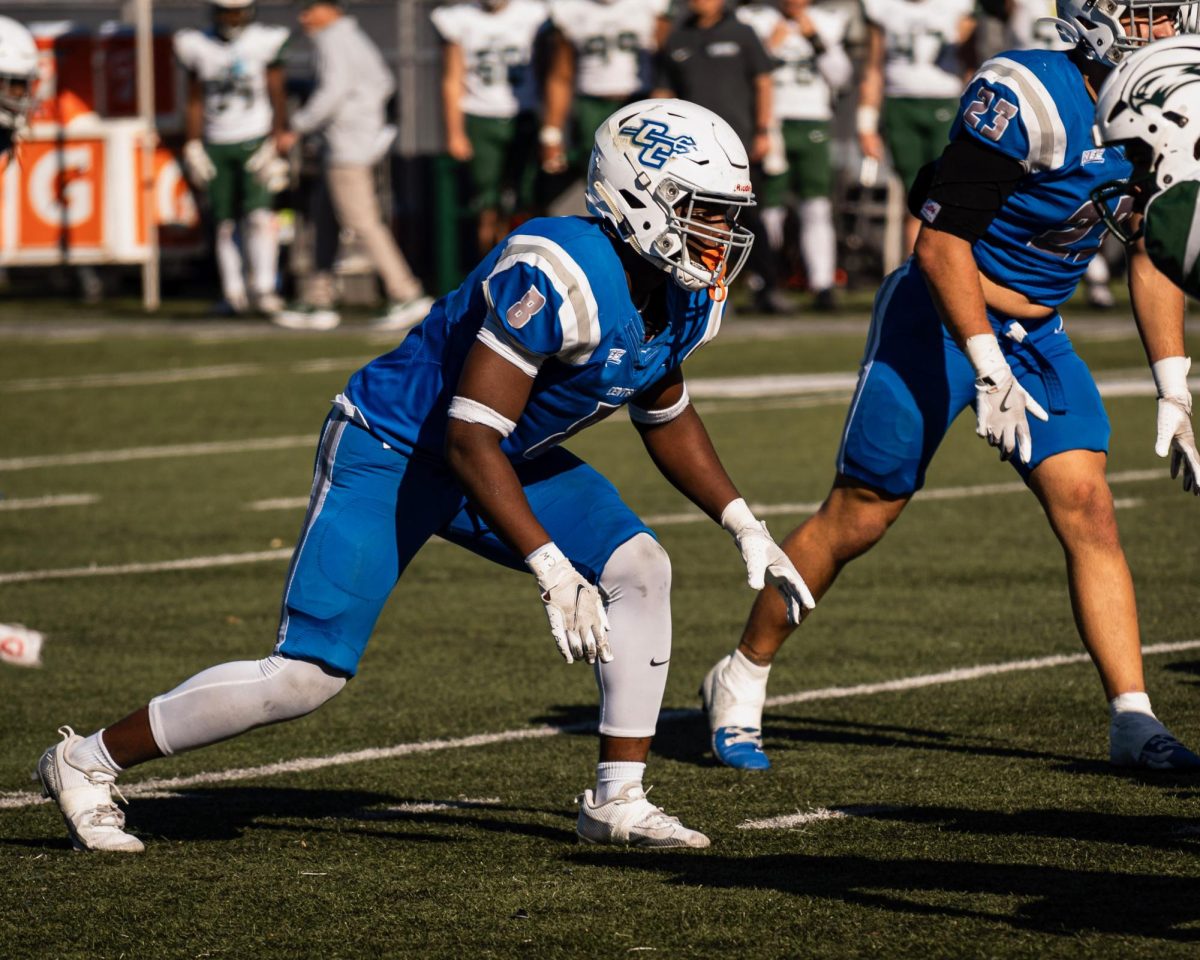Born and raised in a Cuban neighborhood of Miami, Florida, Central Connecticut State University softball player Kassandra Machado was immersed in the game of baseball from an early age. Baseball, the national sport of her parents’ native Cuba, was, and still is, an integral part of her life.
“I grew up with baseball,” Machado said. “I started with baseball, rather than softball. It’s just the culture.”
For many athletes of Latin-American descent, baseball and softball are the clear leaders in their childhood and adolescent years. A study done by researchers at the University of Florida in 2017 showed baseball and softball to not only be the most popular sports among Latin-American athletes, but also the sports in which they feel the most welcome.
The study, led by Trevor Bopp, Robert Turick, Joshua D. Vadeboncoeur and Thomas Aicher, aimed to quantify perceived welcomeness among athletes of different races and ethnicities.
The research group devised a formula to turn perceived welcomeness into a single number, with the higher numbers meaning a higher perceived welcomeness by a racial group in their specific sport.
Hispanic and Latino athletes generally reported feeling less welcome in their sports than white athletes. The only sports in which Hispanic and Latino athletes measured closely to white athletes were baseball and softball, as well as soccer.
Soccer was also the only sport in which Hispanic/Latino athletes were quantified as the most welcome.
African-Americans had a similar lack of welcomeness in comparison to whites, as their only scores that exceeded the whites’ scores were in basketball and football.
CCSU softball alum Paige Stringer, from Monroe, Washington, said she doesn’t believe in ethnic differences, especially in sports.
“It’s not about who you are. It’s about how you play,” Stringer said. “Your background doesn’t matter. All that matters is how you play on the field. Leaving peoples’ bias outside of the field is the best thing you could do. There’s a lot of stereotypes that go on around the world with everything, not even just sports. We should learn who people are, not just what they are. We’re all different, it doesn’t really matter.”
Former CCSU and current Regis College softball coach Carolyn Biel, a former high school and college athlete from Wallingford, said that equity in sports has come a long way, in both gender and racial equity, but there is still a long way to go before sports are truly equal for all.
“Women’s sports are getting a lot more opportunities,” Biel said. “It’s really just a matter of getting the sports more recognition on a media basis, and I think it’s a step in the right direction, but it’s definitely not equitable.”
Biel said that when she was a high school athlete, it was easy to tell which areas had more money dedicated to athletics, and that these areas in Connecticut are almost always predominantly white.
“When we would travel and go to Wilbur Cross [High School], Career [High School] or Hillhouse [High School], their locker rooms weren’t as nice, their resources weren’t as good and their school system clearly wasn’t as good as Sheehan High School in Wallingford or North Haven High School,” Biel said. “I learned at a very young age that it’s not equitable, and there are certain schools that have less than other schools.”
Biel called for a change in state and federal legislature to further assist school districts that have less to offer than others.
“It’s not even just the sports. It’s the resources in general that more inner-city schools don’t have,” Biel said. “That has to do with your government, so I say get out there and vote.”
The study from the research corroborated Biel’s sentiment.
“Differences in socioeconomic status, race, and social structures such as schools and recreational sites can limit access and marginalize participation opportunities for minority youth,” the group wrote. “Consequently, particular sports may not be considered ‘racially neutral’ resulting in participation differences accordingly with those traditionally labeled ‘Black’ or ‘White.’ Thus, some sports may ‘seem more appropriate for one racial group versus another.’”
With the overarching theme of the study being welcomeness, Stringer had her own definition of what welcomeness means to her.
“It’s just open arms to whoever shows up to the field that day,” Stringer said. “I had no idea what this recruiting class looked like. I didn’t know any of their names, who they are, where they came from, but we all showed up and we all figured out how we’re going to play with them. It’s easy because once you become friends with someone, nothing else really matters. It’s just showing up and hanging out with your friends. Nothing else really matters.”


